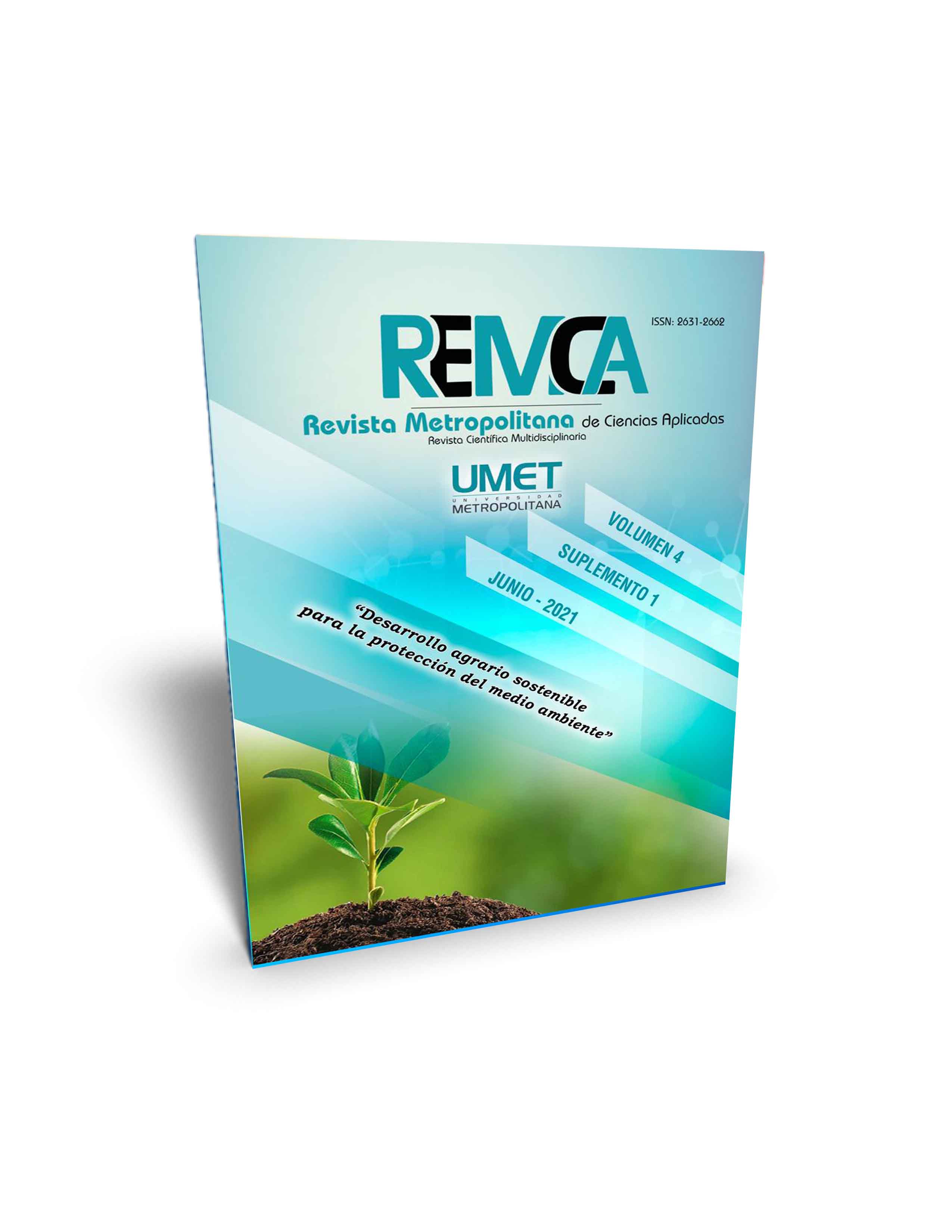Migratory analysis of the agricultural sector in the Zaruma canton of the province of El Oro
DOI:
https://doi.org/10.62452/2f66yf50Keywords:
Migration, rural, agricultural sector, effectsAbstract
The migration of people leaving from rural areas to urban areas has become a common activity that seeks to improve the quality of life. This research seeks to analyze the factors that lead these people to emigrate and what are the effects it causes in the agricultural sector. For which a descriptive and cross-sectional methodological design was used to analyze the different quantitative and qualitative variables. The sample surveyed corresponds to the 200 producers in the agricultural sector. The main results are: 36.5% emigrate to the city in search of a better future, while 63.5%, despite the difficulties, prefer to live in the countryside; 39.5% move to the urban sector to study, 38.5% look for work with better remuneration and punctual payments, 18% move due to basic services and 4% due to other factors such as health, internet, entertainment being thus the reasons why migrants decide to travel to the city.
Downloads
References
Alvarado, J., Correa, R., & Tituaña, M. C. (2017). Migración interna y urbanización sin eficiencia en países en desarrollo: evidencia para Ecuador. Papeles de Población, 23(94), 99-123.
Camacho, M. (2018). Diseño arquitectónico de la terminal terrestre para el cantón Zaruma, provincia de El Oro. (Tesis de licenciatura). Universidad Internacional del Ecuador.
Carpio, J. (2015). Propuesta de uso turístico del mirador, sector “La Colina”, cantón Zaruma, Provincia El Oro. (Tesis de Licenciatura). Universidad Católica de Santiago de Guayaquil.
Casas, J., Repullo, J., & Donado, J. (2003). La encuesta como técnica de investigación. Elaboración de cuestionarios y tratamiento estadístico de los datos (I). Aten Primaria, 31(8), 527–538.
Cattaneo, A. (2018). Migración rural, Agricultura y desarrollo rural. FAO. http://www.fao.org/3/I8722ES/i8722es.pdf
Centro Latinoamericano para el Desarrollo Rural. (2017). Ecuador: migración de los jóvenes impacta en el crecimiento de la población rural. RIMISP. https://www.rimisp.org/noticia/ecuador-migracion-de-los-jovenes-impacta-en-el-crecimiento-de-la-poblacion-rural/
Cunduri, E., & Molina, J. (2020). Migración interparroquial rural-rural del Ecuador en el año 2010. (Tesis de licenciatura). Universidad Central del Ecuador.
Eguiguren, M. (2017). Los estudios de la migración en Ecuador: del desarrollo nacional a las movilidades. Íconos. Revista de Ciencias Sociales, 58(58), 59–81.
Fuentes Aguila, M. R., & Castellanos Fuentes, P. E. (2020). El problema migratorio, un fenómeno global. Revista Metropolitana de Ciencias Aplicadas, 3(1), 169–176.
Izurieta, E. (2016). Estudio de los principales incidentes migratorios de la provincia de el oro y sus repercusiones al sector social y turístico. (Tesis de licenciatura). Universidad Técnica de Machala.
Luque, A., Carretero, P., & Morales, P. (2019). El desplazamiento humanitario en Ecuador y los procesos migratorios en su zona fronteriza: Vulneración o derecho. Revista Espacios, 40(16).
Mora, S. (2017). Rehabilitación del Cerro Zaruma Urcu mediante el diseño de un sendero – mirador y complejo turístico para la parroquia urbana Zaruma. (Tesis de licenciatura). Universidad Central del Ecuador.
Orler, J. (2010). El uso de encuestas en Sociología Jurídica. Los sondeos de opinión sobre la Administración de Justicia: posibilidad de un estudio Cross-Country en Argentina y España. Revista Derecho y Ciencias Sociales, 2, 215–229.
Pino, S., Aguilar, H., Apolo, A., & Sisalema, L. (2018). Aporte del sector agropecuario a la economía del Ecuador. Análisis crítico de su evolución en el período de dolarización. Años 2000 – 2016. Revista Espacios, 39(42).
Romero, M. (2018). Plan de manejo de desechos sólidos del sector casco urbano de la ciudad de Zaruma, año 2018. (Tesis de licenciatura). Universidad Técnica de Machala.
Sánchez, C. (2016). Medidas de implementación al sector campesino para mejorar las actividades agrícolas y evitar la migración campo – ciudad. (Tesis de licenciatura). Universidad Técnica de Machala.
Velasteguí López, E., & Tuapanta Pilatasig, B. (2018). La migración interna de los campesinos hacia las zonas urbanas en el Ecuador. Visionario Digital, 2(4), 5–18.
Downloads
Published
Issue
Section
License
Copyright (c) 2021 Ronald Jhon Vásquez Chalco, Jessica Maribel Quezada Campoverde, Héctor Carvajal Romero, Abrahan Rodolfo Cervantes Alava (Autor/a)

This work is licensed under a Creative Commons Attribution-NonCommercial-ShareAlike 4.0 International License.
Authors who publish in Revista Metropolitana de Ciencias Aplicadas (REMCA), agree to the following terms:
1. Copyright
Authors retain unrestricted copyright to their work. Authors grant the journal the right of first publication. To this end, they assign the journal non-exclusive exploitation rights (reproduction, distribution, public communication, and transformation). Authors may enter into additional agreements for the non-exclusive distribution of the version of the work published in the journal, provided that acknowledgment of its initial publication in this journal is given.
© The authors.
2. License
The articles are published in the journal under the Creative Commons Attribution-NonCommercial-ShareAlike 4.0 International License (CC BY-NC-SA 4.0). The terms can be found at: https://creativecommons.org/licenses/by-nc-sa/4.0/deed.en
This license allows:
- Sharing: Copying and redistributing the material in any medium or format.
- Adapting: Remixing, transforming, and building upon the material.
Under the following terms:
- Attribution: You must give appropriate credit, provide a link to the license, and indicate if any changes were made. You may do this in any reasonable manner, but not in any way that suggests the licensor endorses or sponsors your use.
- NonCommercial: You may not use the material for commercial purposes.
- ShareAlike: If you remix, transform, or build upon the material, you must distribute your creation under the same license as the original work.
There are no additional restrictions. You may not apply legal terms or technological measures that legally restrict others from doing anything the license permits.




